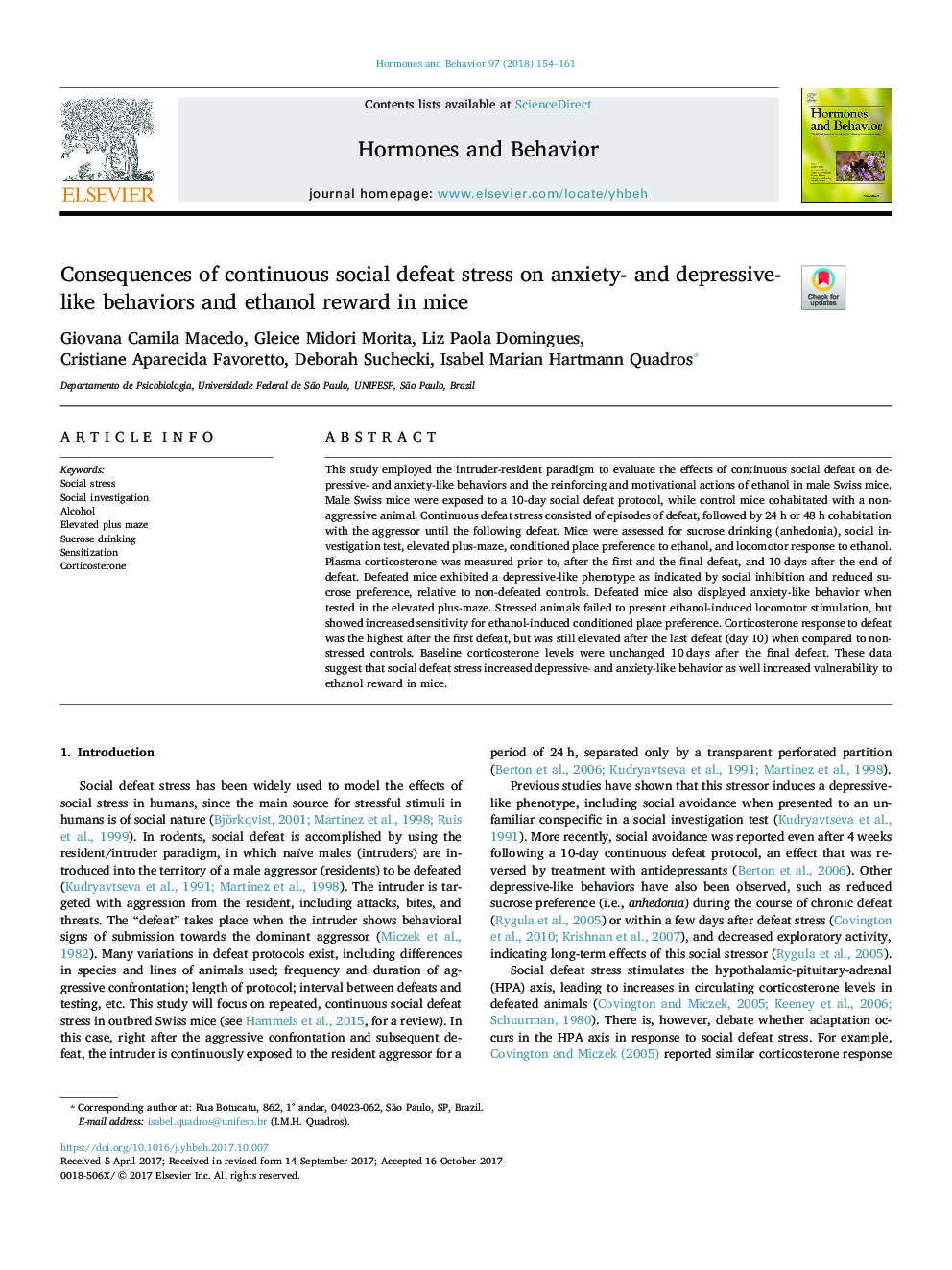| Article ID | Journal | Published Year | Pages | File Type |
|---|---|---|---|---|
| 6794216 | Hormones and Behavior | 2018 | 8 Pages |
Abstract
This study employed the intruder-resident paradigm to evaluate the effects of continuous social defeat on depressive- and anxiety-like behaviors and the reinforcing and motivational actions of ethanol in male Swiss mice. Male Swiss mice were exposed to a 10-day social defeat protocol, while control mice cohabitated with a non-aggressive animal. Continuous defeat stress consisted of episodes of defeat, followed by 24Â h or 48Â h cohabitation with the aggressor until the following defeat. Mice were assessed for sucrose drinking (anhedonia), social investigation test, elevated plus-maze, conditioned place preference to ethanol, and locomotor response to ethanol. Plasma corticosterone was measured prior to, after the first and the final defeat, and 10Â days after the end of defeat. Defeated mice exhibited a depressive-like phenotype as indicated by social inhibition and reduced sucrose preference, relative to non-defeated controls. Defeated mice also displayed anxiety-like behavior when tested in the elevated plus-maze. Stressed animals failed to present ethanol-induced locomotor stimulation, but showed increased sensitivity for ethanol-induced conditioned place preference. Corticosterone response to defeat was the highest after the first defeat, but was still elevated after the last defeat (day 10) when compared to non-stressed controls. Baseline corticosterone levels were unchanged 10Â days after the final defeat. These data suggest that social defeat stress increased depressive- and anxiety-like behavior as well increased vulnerability to ethanol reward in mice.
Related Topics
Life Sciences
Biochemistry, Genetics and Molecular Biology
Endocrinology
Authors
Giovana Camila Macedo, Gleice Midori Morita, Liz Paola Domingues, Cristiane Aparecida Favoretto, Deborah Suchecki, Isabel Marian Hartmann Quadros,
